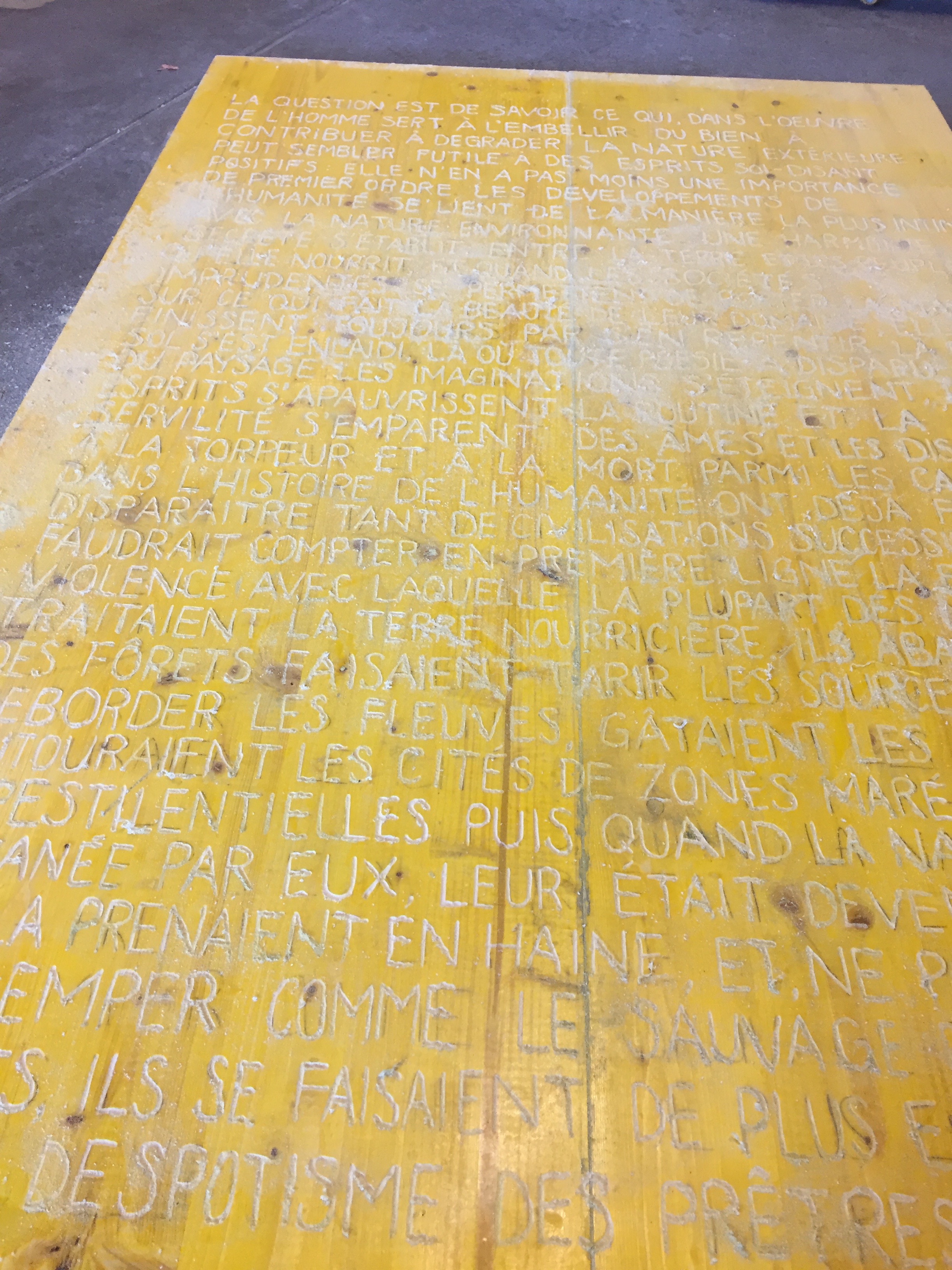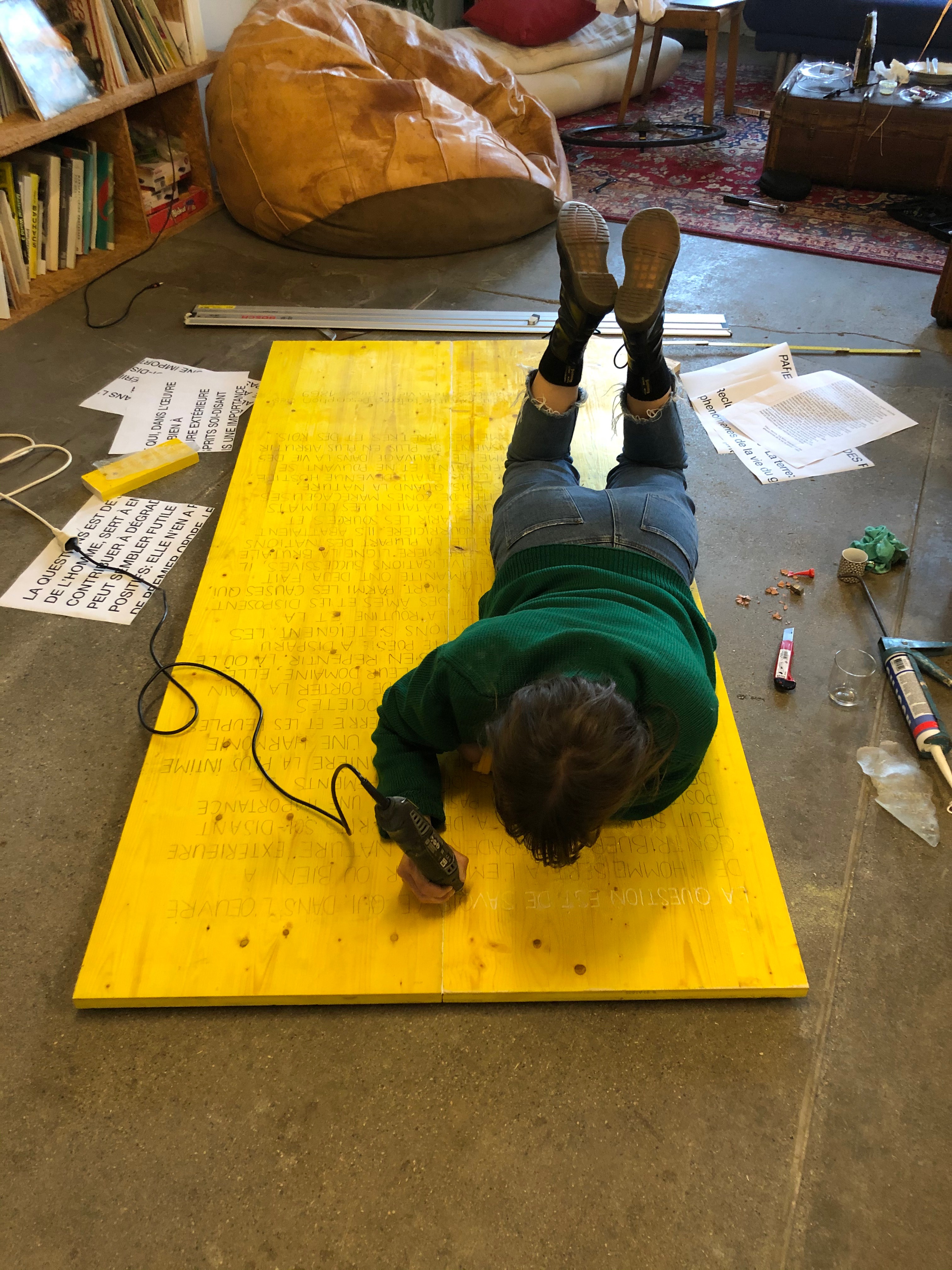KLIMA HALLE
2020 – Bern
One of the most pressing issues menacing our ecosystems is the extraordinary amount of plastic materials that end up in nature. It is interesting to confront our present situation, the way our societies have pushed our ressources and environnement, to their limits with the vision of Elisée Reclus, a french geographer of the 19th century (see below), who foresaw the impact of humanity on climate. The installation looks like plastic, the very waste we should be avoiding, but it is in fact made of a fully biodegradable baterian biopolymer.
The short text of Elisée Reclus was engraved on a wooden panel, that served as a mold for the biopolymer. The perishable nature of the material – it can be composted in a few weeks – offers a strong contrast to the engraved message, which, even if it is 150 years old, still remains contemporary.
Elisée Reclus (1830-1905) was, a french geographer, teacher, writer and anarchist. 150 years ago he wrote the two volumes of “La Terre: Description des Phénomènes de la Vie du Globe”. The views he exposes in these very little known books makes him a pioneer of ecology and social geography. One of the reasons his work has been almost forgotten is his political engagement as an anarchist. He was banned from France for 10 years for having taken part in the Commune uprising in Paris in 1971. He lived for a time in Lugano and near Montreux, before settling in Belgium, where he died in 1905.
“ The issue of understanding in man’s work what embellishes or instead contributes to hurt nature can seem futile to so-called positive minds: but it is still a primordial issue to address. The development of humanity is intimately linked to the surrounding nature. A secret harmony is established between earth and the peoples she feeds, and when careless societies allow themselves to lay hands on what makes the beauty of their realm, they always eventually regret and seek repentance. Where the soil has become ugly, where poetry has disappeared from the landscape, imaginaries dwindle, minds shrink, quotidian and servitude take over the souls and bring torpor and death. Among the causes which, in the history of humanity, have already led to the disappearance of so many civilisations, one would have to take into account the brutal violence with which most of nations treated the nourishing land. They would bring down forests, dry up sources and overflow rivers, corrupt climates, surround cities with pestilential swamps; then, when nature, violated by them, had become hostile, they would start hating her, and, with no possiblity to go back like a savage to a life in the forests, they would been dazed by the despotism of priests and kings.”
“La Terre: Description des Phénomènes de la Vie du Globe, vol.2” , 1869, Paris, L. Hachette et Cie
︎︎︎ Klima Halle, Tour de Lorraine 2020, Bern
January 2020





